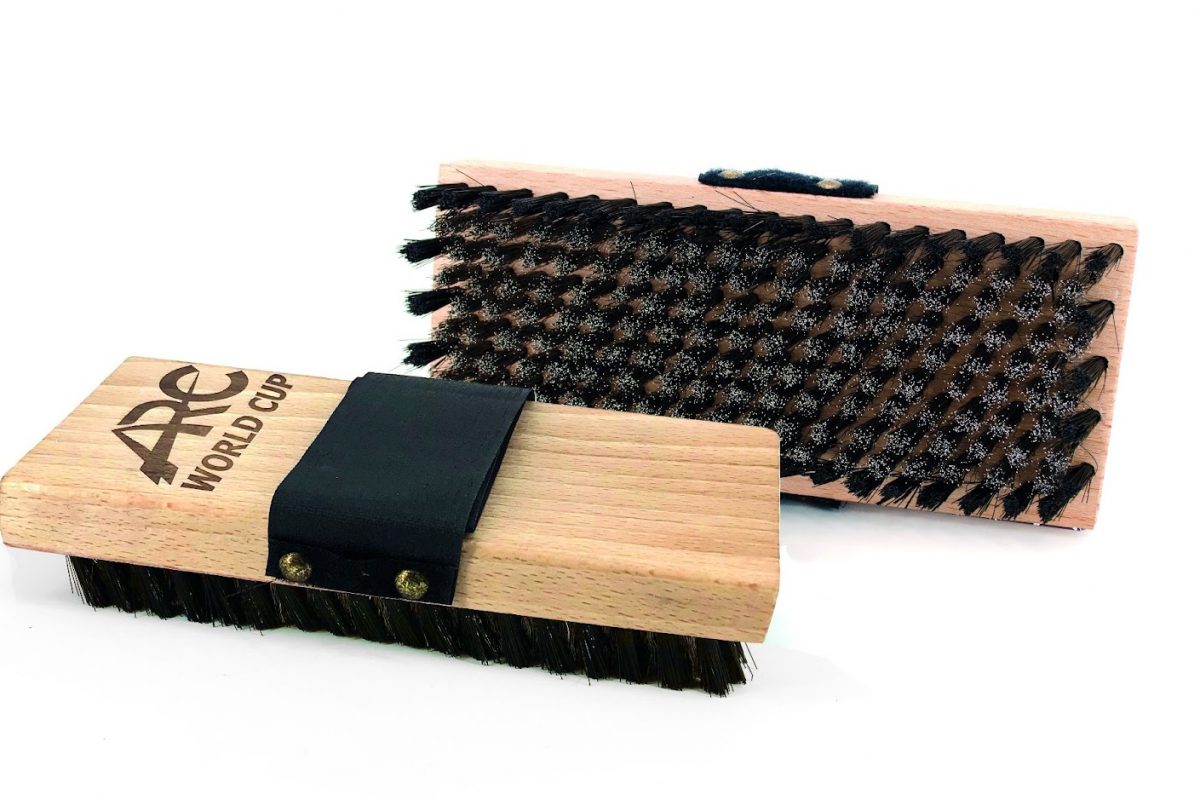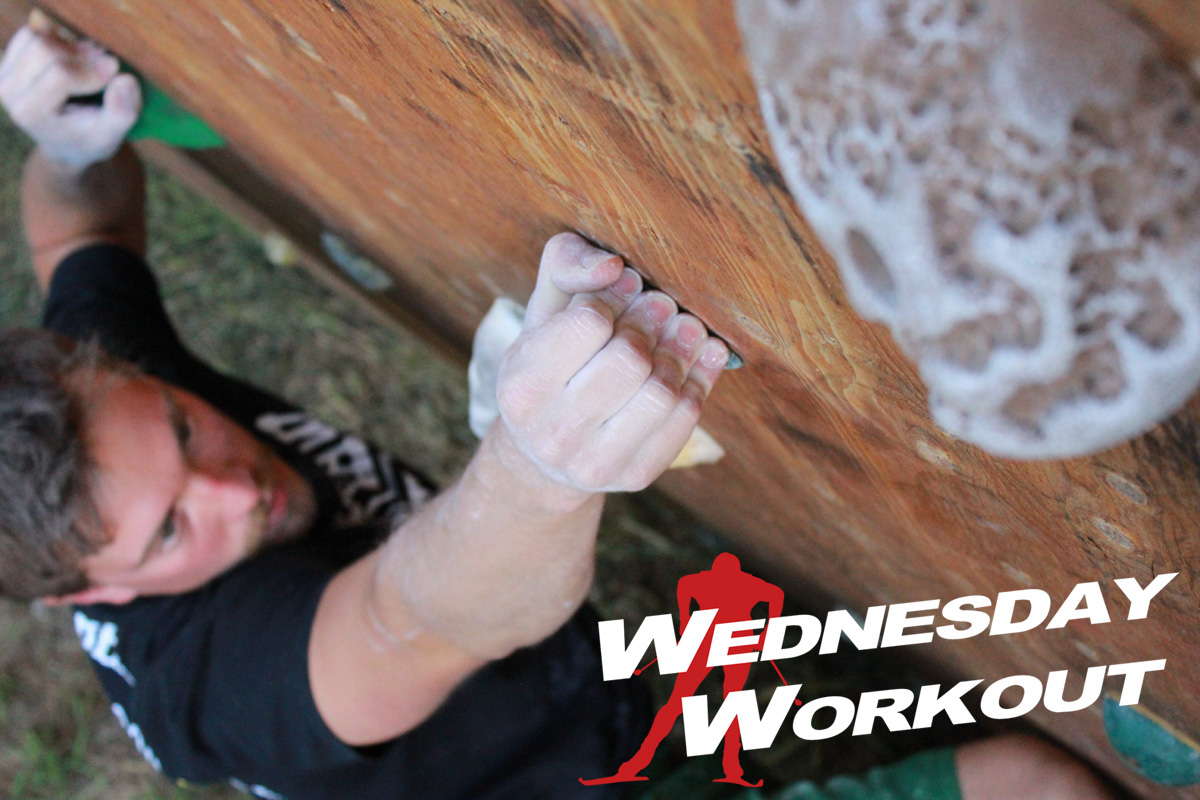
For this week’s Wednesday Workout, FasterSkier provides a firsthand account of backyard climbing, what an endurance climbing workout entails and how to build your own backyard climbing wall.
***
BOZEMAN, Mont. — A cloud of white chalk dust mushrooms from my housemate’s hands as he claps them together. The woven orange and black chalk bag he had been holding a few seconds ago now sits in the grass, next to a pair of worn-out Chaco sandals and a faded black hoodie. A quick glance at my wrist watch shows the time to be 7:20 p.m. However, with the summer solstice and a cool evening breeze on our side, there’s still plenty of daylight left for photographs and climbers’ pull-ups.
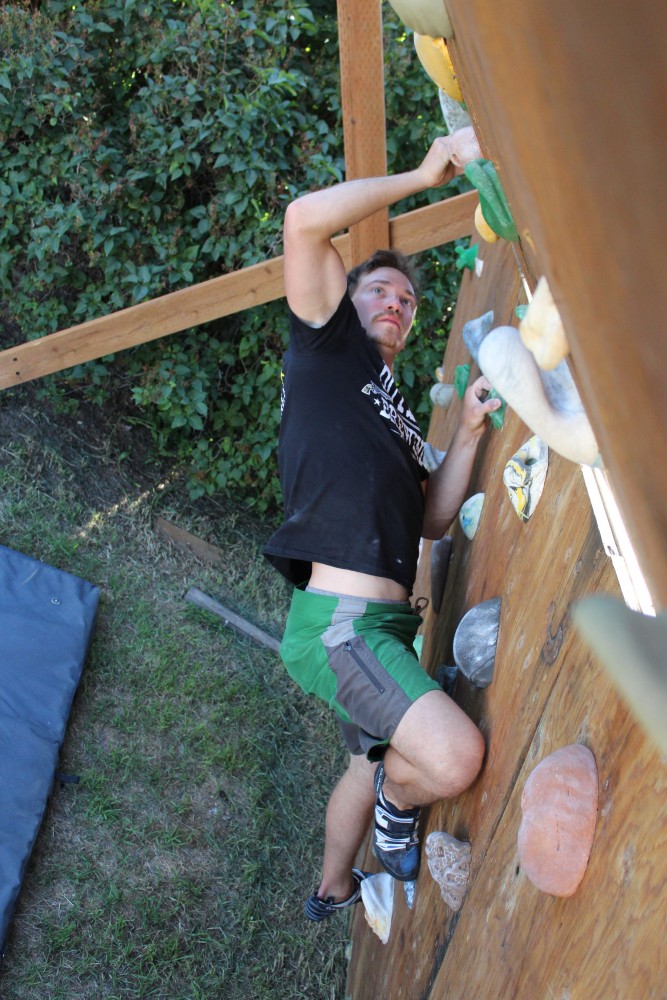
I focus my camera lens on his right hand gripping a particularly small hold as I perch atop a homemade climbing wall erected in our backyard a little over three months ago. My housemate, Jason Brenden, originally from Grand Rapids, Minn., made it with a friend, and I decide Jason is certainly not the nordic-type.
He is not about to start writing down what he does for workouts during the week. He does not wear spandex, nor is he about to go for a four-hour weekend run in the mountains — I’ve witnessed him slip out the front door for a jog before, only to find him re-enter 15 minutes later.
He’s a longtime climber and a brand-new nordic skier, taking up the latter recreationally last winter.
Camera still in hand, I make my way down the back of the climbing wall. I walk around to the front and plop down next to Jason on one of the two crash pads resting beneath the wall’s overhang. He slips off his blue-and-black climbing shoes, leans back and something like the scent of sour onions and old socks settles between us. I consider telling him we could postpone the talk until after he showers, but change my mind. I can wait it out.
He begins telling me about a major climbing trip he is putting money aside to take one day. His favorite place to climb turns out to be Squamish, British Columbia.
“I spent a month there two years ago,” Jason, 25, says. “Outside climbing is definitely different than inside in terms of footwork and technique. There are a lot of little holds on the rock you can use that aren’t in the gym.”
As we continue to chat, he throws around terms like “jug”, “traverse”, and “lock-off” and I’m not afraid to admit I have no idea what any of them mean. Listening to him, I know that he and many skiers may never see eye-to-eye regarding some aspects of training. There are many training tenets on which he and I will also never find level ground.
Yet, facing him cross-legged on the crash pad, I can see a trace of fire in his eyes and feel the heat in his tone when he talks about climbing; his frustrations with outsiders to the sport who question climber lingo (nordic translation: ever try to explain L1, L2, L3, L4, L5 target training zones to an outsider?)
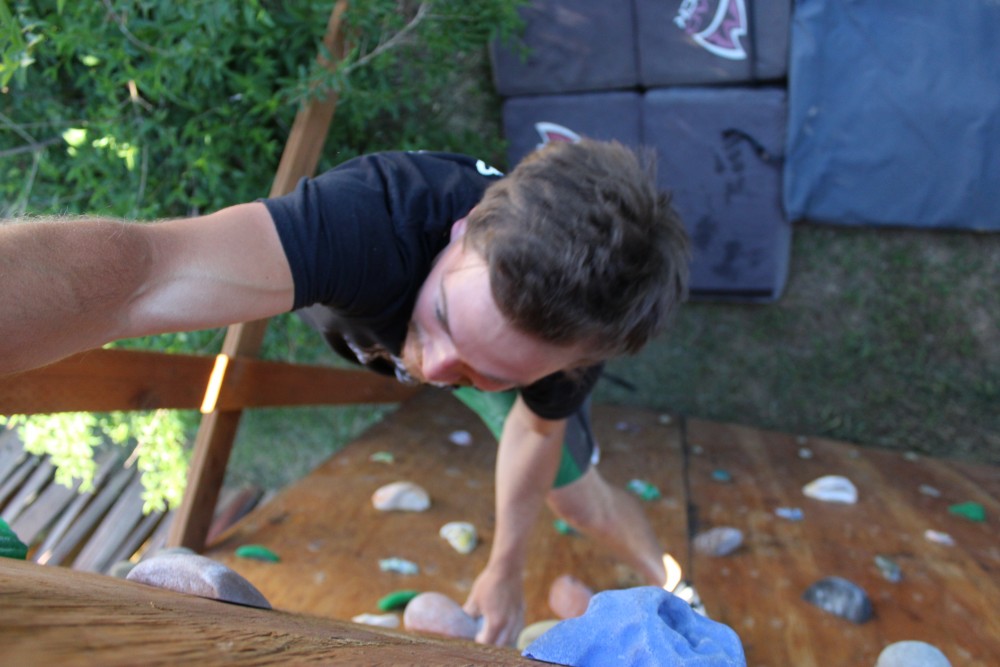
Even if Jason takes his kale alongside a tall glass of ale (he’s a brewer at Outlaw Brewing in Bozeman) — whether he’s in-season or off — there is one characteristic he espouses similar to cross-country skiers: passion for a sport and its community. In the case of Jason, that sport is climbing.
Like many skiers, Jason spends a lot of time watching video — the ones he watches just happen to be of people scaling rock instead of snow-covered trails. Like many skiers, Jason enjoys conversing with people who understand the sports’ jargon and draw. Like many skiers, he also appreciates the way sport creates a way to be social, to connect with neighbors, friends and new faces.
“The best thing about having a wall in your backyard is inviting all your friends over to drink, barbeque, and climb,” he said. “That’s the real reason you build a climbing wall in your backyard. Not so much for training.”
The Workout
Purpose: Build endurance
Warmup: 15-20 minutes of traversing (climbing up and down) the biggest holds, with occasional rests
5 minute rest prior to circuit
Circuit: 2-3 x 30 minutes of continuous climbing
Jason says you may rest on large holds, but not to let your feet touch the ground
8 minutes rest between each 3- minute climbing segment
Equipment: climbing shoes, chalk, and crash pads
Jason also suggests having “a spotter so you don’t break your ankle.”
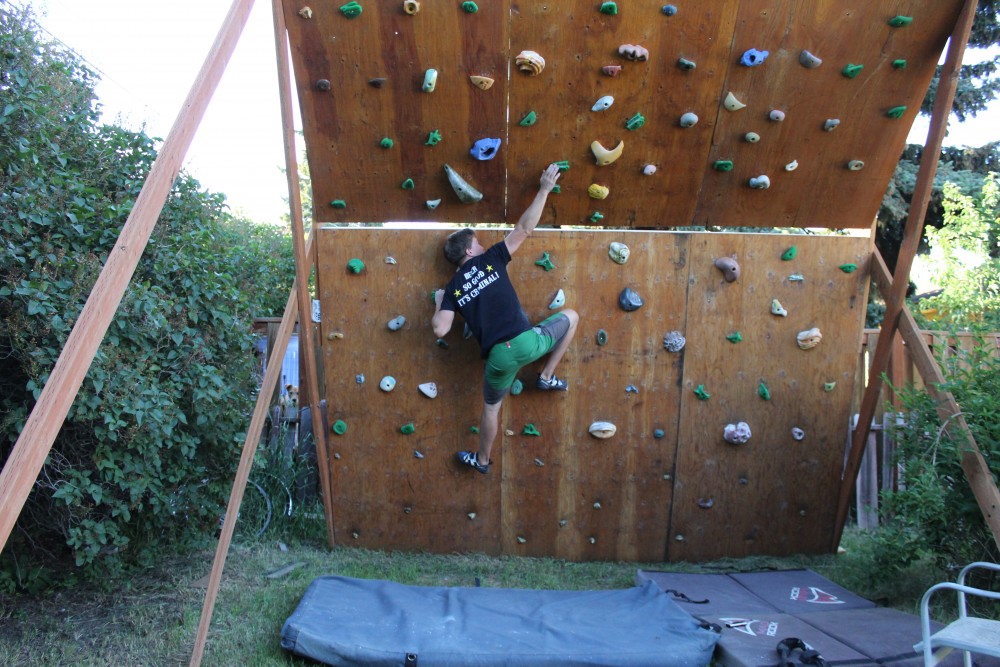
How to Build Your Own Wall (Jason’s guide):
Supplies: Plywood, 2 x 4 lumber, T-nuts, holds (average $5-$20 per hold)
- Step 1: Frame out the back similar to putting up a wall in a house (We ran our 2 x 4’s horizontally instead of vertically in the back)
- Step 2: Screw plywood sheeting into the 2 x 4’s
- Step 3: Drill holes in the plywood (this is where your T-nuts and holds will go)
- Step 4: Screw your holds on using the T-nuts
- Step 5: If you want a second level, you got to get some heavy duty lumber, bolts, and get creative!
Jason’s Building Tip:
“You can set holds to train certain moves,” Brenden said. “For example, if you want to work on left-handed lock-offs [using tendon strength to support weight on a handhold without tiring muscles too much], you would set holds so you have to pull your left hand toward your chest while you reach with your right hand to a far away hold. The idea with that is you’re practicing moving really slowly, training those muscles to lock your body off and make a controlled move.”
Gabby Naranja
Gabby Naranja considers herself a true Mainer, having grown up in the northern most part of the state playing hockey and roofing houses with her five brothers. She graduated from Bates College where she ran cross-country, track, and nordic skied. She spent this past winter in Europe and is currently in Montana enjoying all that the U.S. northwest has to offer.

